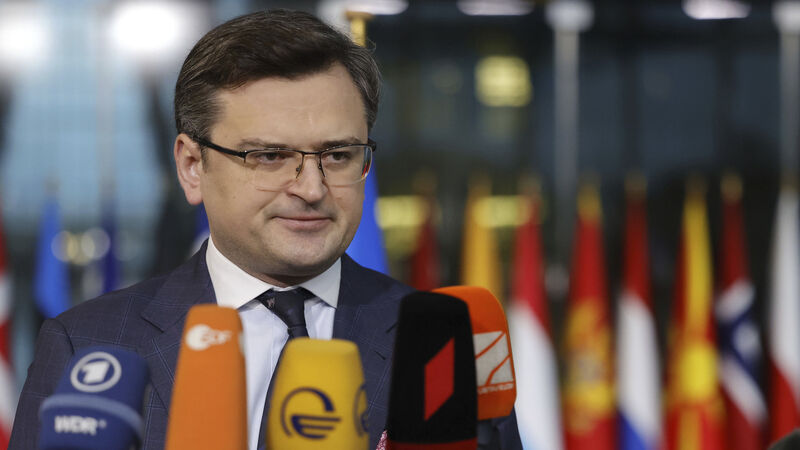European army not 'a realistic vision', says EU security chief

Ukraine's foreign minister Dmytro Kuleba at a meeting of Nato foreign ministers at Nato headquarters in Brussels on Thursday. At the meeting, Mr Kuleba said that what his country urgently needs is 'weapons, weapons, weapons'. Picture: Olivier Matthys/AP
EU member states are considering providing a further €500m to Ukraine's army after its foreign affairs minister said that what his country urgently needs is “weapons, weapons, weapons”.
A senior EU security chief told an Irish-based webinar that this would bring the EU Ukrainian military fund to €1.5bn.













